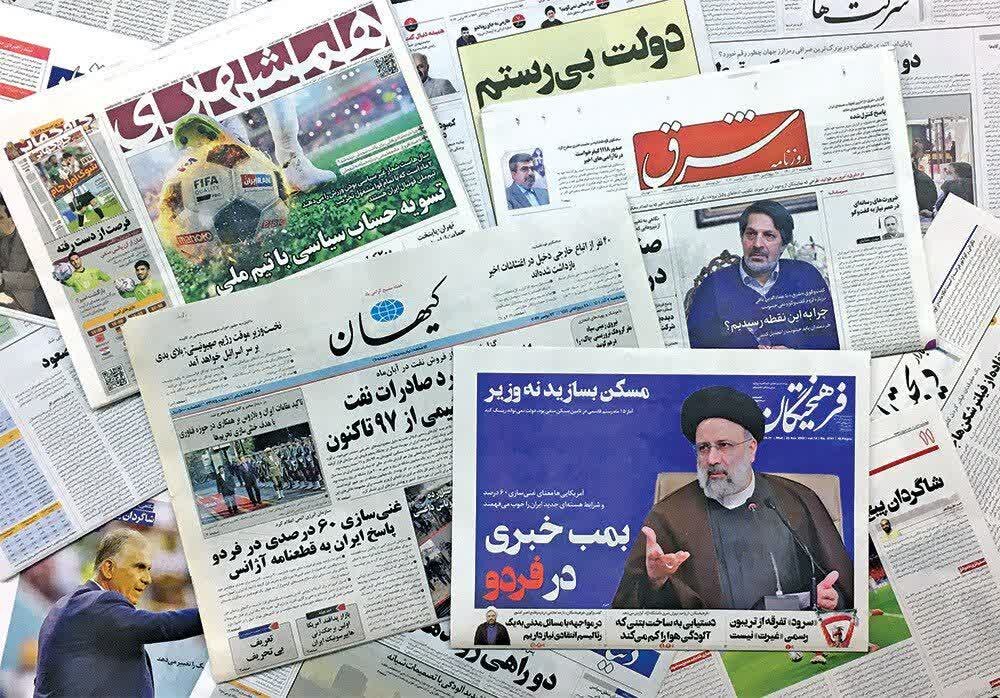Iran-China relationship has never been turbulent

On President Ebrahim Raisi’s visit to China, the Etela'at newspaper quotes Economy Minister Ehsan Khandouzi as writing in an op-ed that the relationship between Iran and China has not seen any dark and turbulent points in the past few millennia, and the two ancient and civilized nations have always set up win-win paths and strategies to benefit from each other's capacities in different historical periods.
One day this civilized relationship was formed on a commercial route called Silk Road, and another day through meeting each other's economic and strategic needs.
The minister views China, which has turned into the second largest economy in the world through “rapid economic growth”, and Iran as a “peaceful power” that is gifted with special geographical position as complementary. Gifted with such a unique geographical location coupled with its abundant economic potential has gradually turned Iran into a gate between China and Southwest Asia and even Europe.
China’s Belt and Road Initiative has a lot in common with the strategy of President Raisi's government to develop all-round relations with neighbors and allies, which can lead to serious openings in various economic fields between the two countries by relying on existing capacities.
Last year, Iran-China's 25-year agreement officially entered the implementation phase, and the results of the cooperation will be achieved soon.
Arman-e-Melli: Iran should not put its all its eggs in China's basket
Hassan Beheshtipour, a political analyst, refers to President Raisi's visit to China and writes: Iran should formulate its relations with China based on national interests and not put all its eggs in China's basket.
It is important that the president of Iran visited China after 20 years. One of the issues that will definitely be discussed in the trip is Iran–China 25-year cooperation plan.
This important point should be kept in mind that today East and West no longer exist in the same meaning as it was during the Cold War.
Therefore, countries and their geographical positions have nothing to do with us; what is important to us is the national interests of our country, and we should have relationship with any country that meets Iran's national interests.
Unlike Russia and Iran which are competitors in the oil and gas markets, China needs Iranian oil and Iran needs income from oil exports.
Also, Iran can buy goods from China that other countries refuse to sell to it, but Iran must develop comprehensive relations with others.
Javan: Trend of Iran-China relations has been upward
Javan writes: The relations between Iran and China have been among the most stable relations over the past four decades, and the curve of relations between the two countries has always been on the rise.
The signing of a 25-year partnership agreement between the two countries is the maximum level of mutual trust and the long-term attitude of the two countries in their relations.
The two countries emphasize moving within the framework of the strategy of looking to the East and transferring hegemony from the West to the East, and they believe that order based on Eastern values and norms should return to international relations.
Today, China and Iran are trying to prepare a new multilateral order centered on the Eastern powers by leaving behind the current unipolar order headed by the United States.
Therefore, China as a great economic power along with Iran and Russia are trying to shape the main angles of the future global management system.
According to the two countries, this goal will be achieved when the level of their relations rises above the current situation and is defined and adjusted at a strategic level to provide the necessary conditions for cooperation.
Resalat: Why should we not lose the opportunity for effective synergy with China?
Resalat also discusses the Iranian president's visit to China and writes: The purpose of the visit is to further realize and fully consolidate the broad strategic partnership between Tehran and Beijing in the framework of a macro and strategic understanding.
Referring to the West and its allies' policy against the Islamic Republic, and the U.S. attempt to destroy the entire Iranian political system, the columnist says: The case is also true of China. The intensification of the disputes between Washington and Beijing, which we can see in the anti-China agreement between the United States, England, and Australia aka. AUKUS, or the formation of a new security-intelligence war between the two sides, shows that the United States is uneasy with the Chinese hegemony in the international system.
Under such a condition, "strategic synergy" between Tehran and Beijing can be both for "gaining mutual benefit" and for "cooperation against the common enemy."
Khorasan: Tehran-Beijing relations and its enemy
The Khorasan newspaper examines the president's visit to China in an article and writes: This trip had two messages:
Firstly, Iran wanted to show with this maneuver that it is not isolated in foreign policy and against Western pressures and restrictions; secondly, this was a move towards the implementation of the most important bilateral cooperation document, known as Iran-China's 25-year comprehensive plan.
In another part of the analysis, the daily writes: The signing of the 25-year agreement between Iran and China has enemies, the most important of which is the U.S. to intensify Iran's isolation.
The Americans are trying to prevent the implementation of the document by any means, and in the meantime, not reviving the JCPOA and not removing the sanctions are considered major obstacles to achieving the goals of the Iran-China strategic cooperation.
